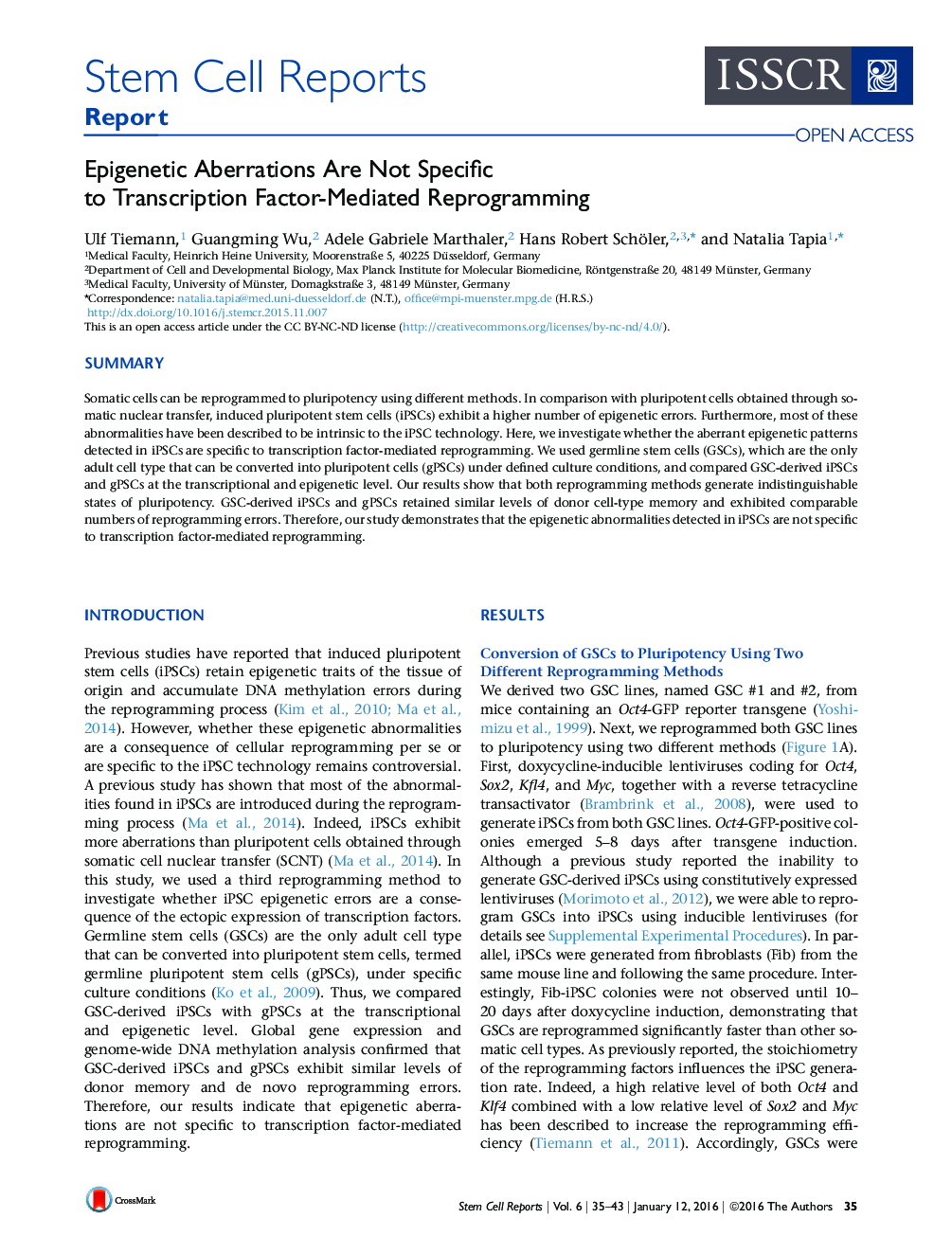| کد مقاله | کد نشریه | سال انتشار | مقاله انگلیسی | نسخه تمام متن |
|---|---|---|---|---|
| 2093286 | 1081951 | 2016 | 9 صفحه PDF | دانلود رایگان |
• GSCs can be converted into iPSCs and into gPSCs under specific culture conditions
• iPSCs and gPSCs retain the same level of donor cell-type epigenetic memory
• Comparable numbers of reprogramming errors can be detected in iPSCs and gPSCs
• Epigenetic aberrations are not specific to transcription factor-mediated reprogramming
SummarySomatic cells can be reprogrammed to pluripotency using different methods. In comparison with pluripotent cells obtained through somatic nuclear transfer, induced pluripotent stem cells (iPSCs) exhibit a higher number of epigenetic errors. Furthermore, most of these abnormalities have been described to be intrinsic to the iPSC technology. Here, we investigate whether the aberrant epigenetic patterns detected in iPSCs are specific to transcription factor-mediated reprogramming. We used germline stem cells (GSCs), which are the only adult cell type that can be converted into pluripotent cells (gPSCs) under defined culture conditions, and compared GSC-derived iPSCs and gPSCs at the transcriptional and epigenetic level. Our results show that both reprogramming methods generate indistinguishable states of pluripotency. GSC-derived iPSCs and gPSCs retained similar levels of donor cell-type memory and exhibited comparable numbers of reprogramming errors. Therefore, our study demonstrates that the epigenetic abnormalities detected in iPSCs are not specific to transcription factor-mediated reprogramming.
Journal: - Volume 6, Issue 1, 12 January 2016, Pages 35–43
